It seems crazy to believe that there are places on this planet that are so amazing, yet underrated. This could be due to many reasons, such as the areas being relatively old and notable. This makes some question if they are worth going to since everyone knows about them. On the other end, there are times when places are awesome yet most people do not know about them at all. Finally, the problem might just be that we lack an appreciation for these places when they are actually pretty cool. Regardless of why there are many amazing places to visit before you die.
In fact, we know quite a few of these places and feel you really need to know about them too. On our list, you’ll see some places that you may have never heard of before while others you’ll know of. Our list includes some specific locations within a country while others will involve an entire city or nation. When we reference those on the larger end of things, we’ll certainly describe why you should book a trip there as soon as possible. Ultimately, you could call this a bucket challenge list of sorts, because we’d say ALL are great places to visit before you die. Let’s get started!
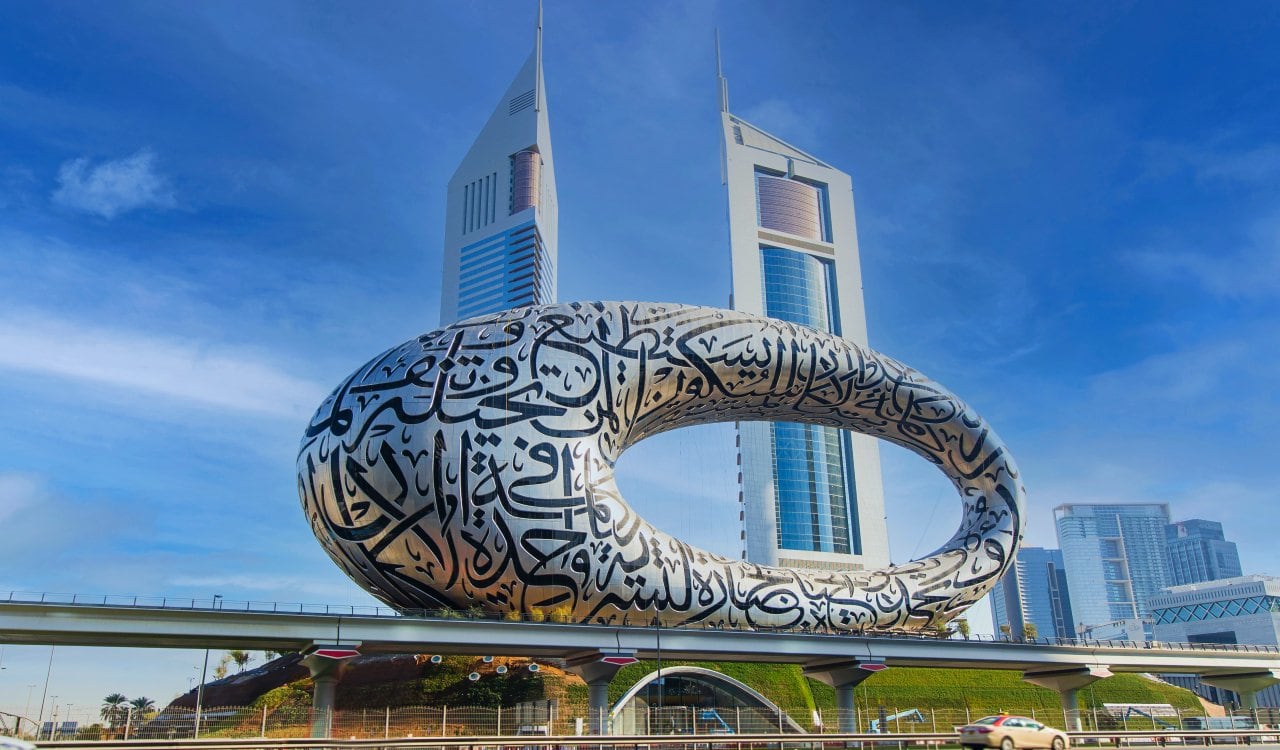
Dubai
- Location: United Arab Emirates
While the Middle East was a beacon for amazing art, science, and much more centuries ago…this sadly stopped by the latter periods. They were no longer a place to be, but rather, a place to escape. The United Arab Emirates has been trying to change this for decades now and has managed to succeed quite well with Dubai. It is the most westernized place in the Middle East, making it a great place for both men and women. The country is dramatically updated and they are adding unique buildings often. What’s also great is their interest in technology and other creative territories, making them a must-see location. The city is quite small, but there is so much worth checking out.
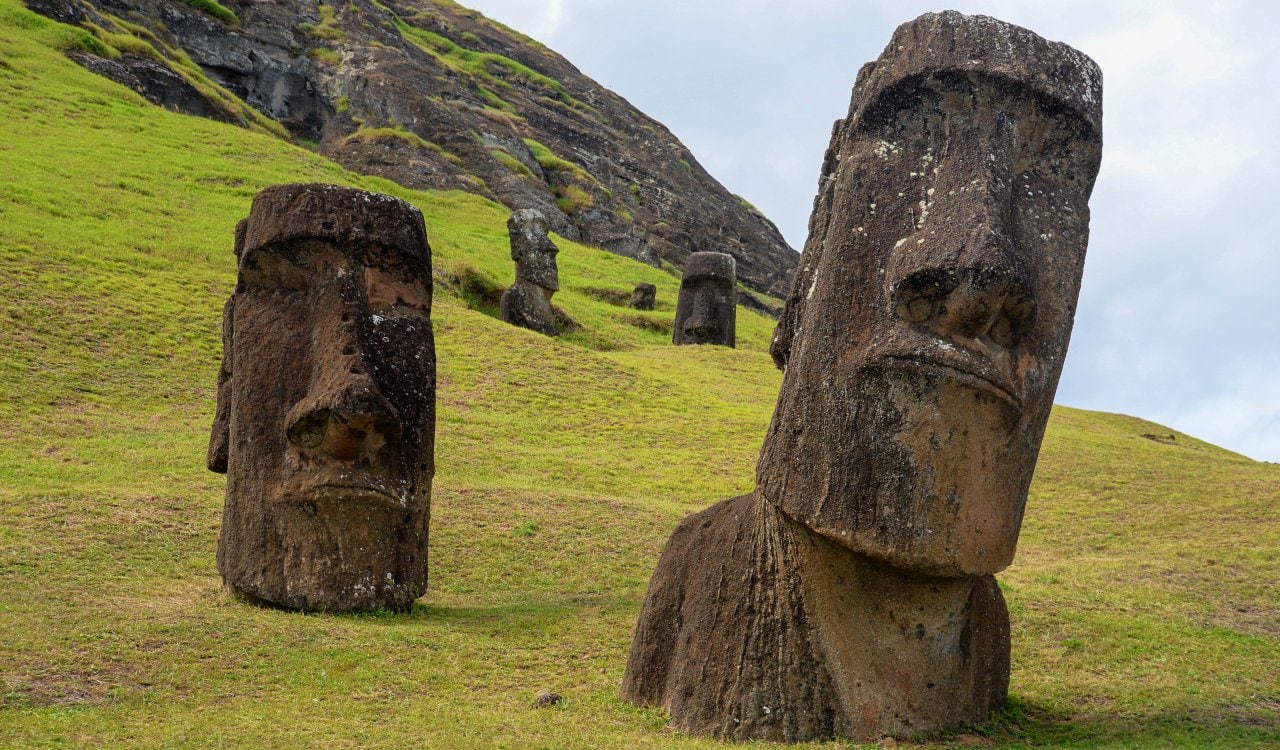
Easter Island
- Location: Rapa Nui, Chile
Easter Island happens to be a territory that belongs to the nation of Chile. Yet it’s 2,200 miles away from the Chilean border, so anyone who lives there will usually do so without much input from the mainland. Easter Island acts essentially on its own, and even Chile has essentially called the location “Rapa Nui.” This is the name of the Polynesian people who have lived there for centuries. Easter Island is most known for its 1,000 extant monumental statues, known as “Moai.” Early Rapa Nui people created them sometime between 1250 to 1500 CE. While at first they were only known for their heads, it was later found that several of these heads are attached to bodies. This is thought to be due to a schism among the people, where some created the heads only while others created entire bodies too.
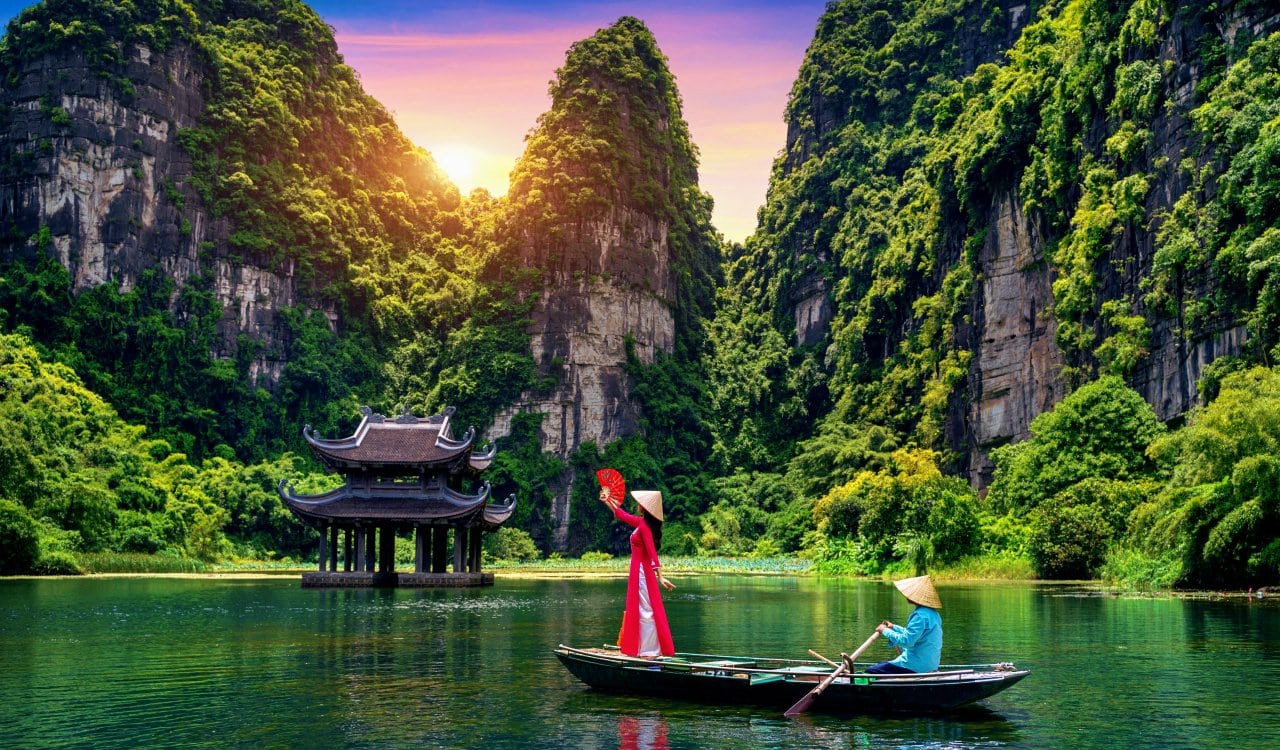
Tràng An
- Location: Ninh Bình/Red River Delta, Vietnam
The Tràng An is a specific location within Vietnam known for its amazing mountainous view, as well as the numerous caves well worth exploring. Many love checking out the caves because they housed human beings for 32,000 years. Thus, there are small trinkets left behind if you look for them. The region is known for its “karst” landscape. This is a landscape of dissolving bedrock that creates sinkholes, sinking streams, caves, springs, and other features. It’s such an amazing view that boat tours are quite common, so it’s relatively easy to check the place out most of the year. We feel it is one of the best places to visit before you die for sure. Even UNESCO thinks it’s impressive, as they made it a World Heritage Site back in 2014.
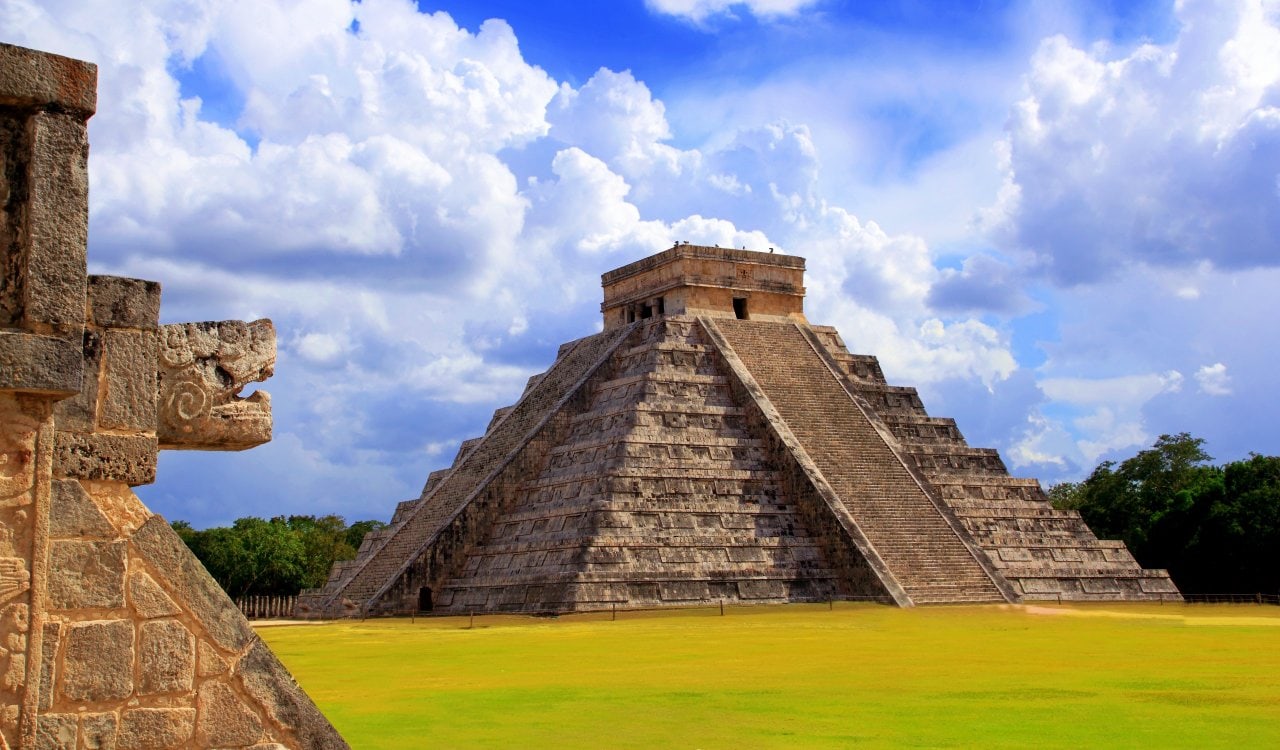
Chichén Itzá
- Location: Yucatán State (Tinúm Municipality), Mexico
We cannot recommend the Chichén Itzá enough as one of the places to visit before you die. The territory was a major part of the Northern Maya Lowlands from 600 to 1200 CE. The architecture in this area is absolutely amazing and considered to be truly one of a kind. What is so compelling is that pyramids were common in Africa for centuries but the Maya never visited places like Egypt. This allowed them to make their own pyramids, but completely unique from the rest of the world. Chichén Itzá is not the largest city in the Mayan world but it was one of the biggest and likely the most diverse in the Mayan culture due to its art. Due to how impressive the location was in its time, many believe it was one of the “mythical great cities” from Mesoamerican literature.
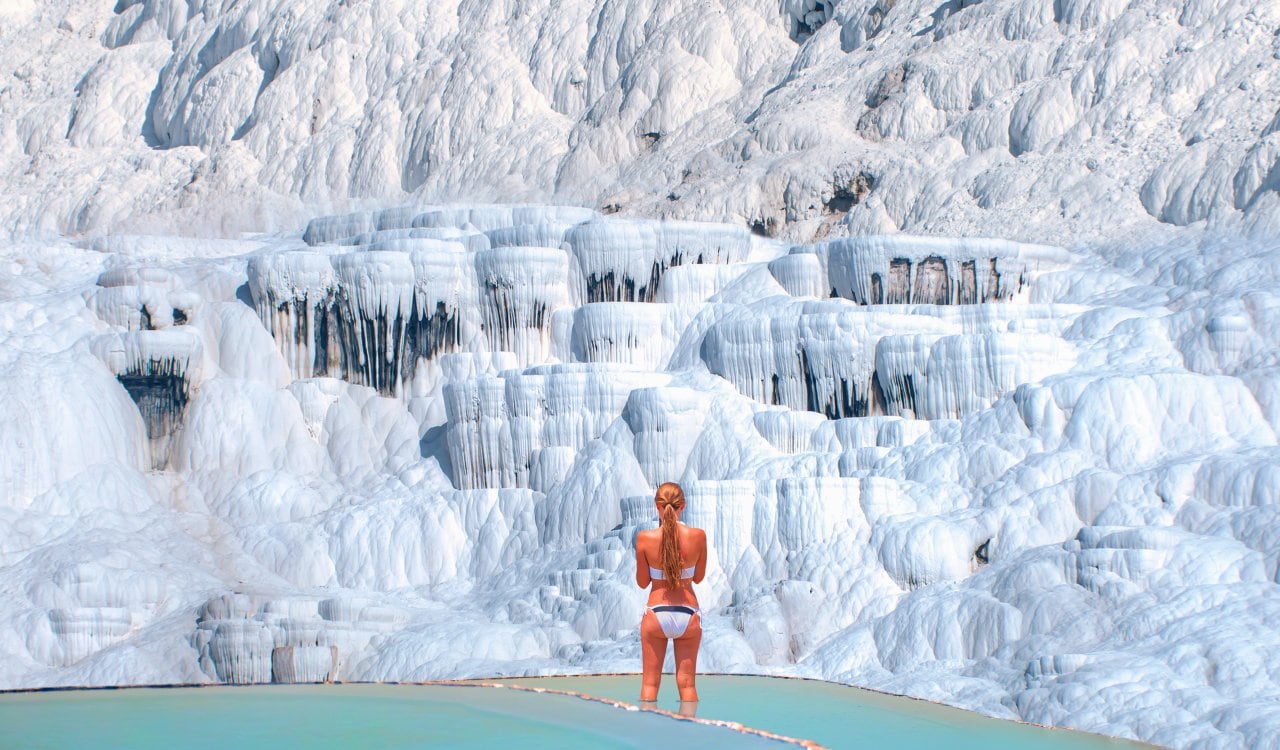
Pamukkale
- Location: Denizli Province, Turkey
Known. by many as the “Cotton Castle,” Pamukkale is somehow a naturally formed site. The carbonate mineral left by thermal spring water is really what makes the place famous. For most of the year, this area seems to keep its temperate climate. That makes it a great place for both tourists and locals alike. The Ancient Greek city Hierapolis was actually built on top of the travertine formation (terrestrial limestone). The formation itself is 8860 feet long, 1970 feet wide, and 525 feet high. This is so large that it can be seen for several miles on the opposite side of the valley. The limestone shimmers and is completely white, all shaped over thousands of years. It is clear nature is sometimes perfect, which is why we feel this is one of the best places to visit before you die.
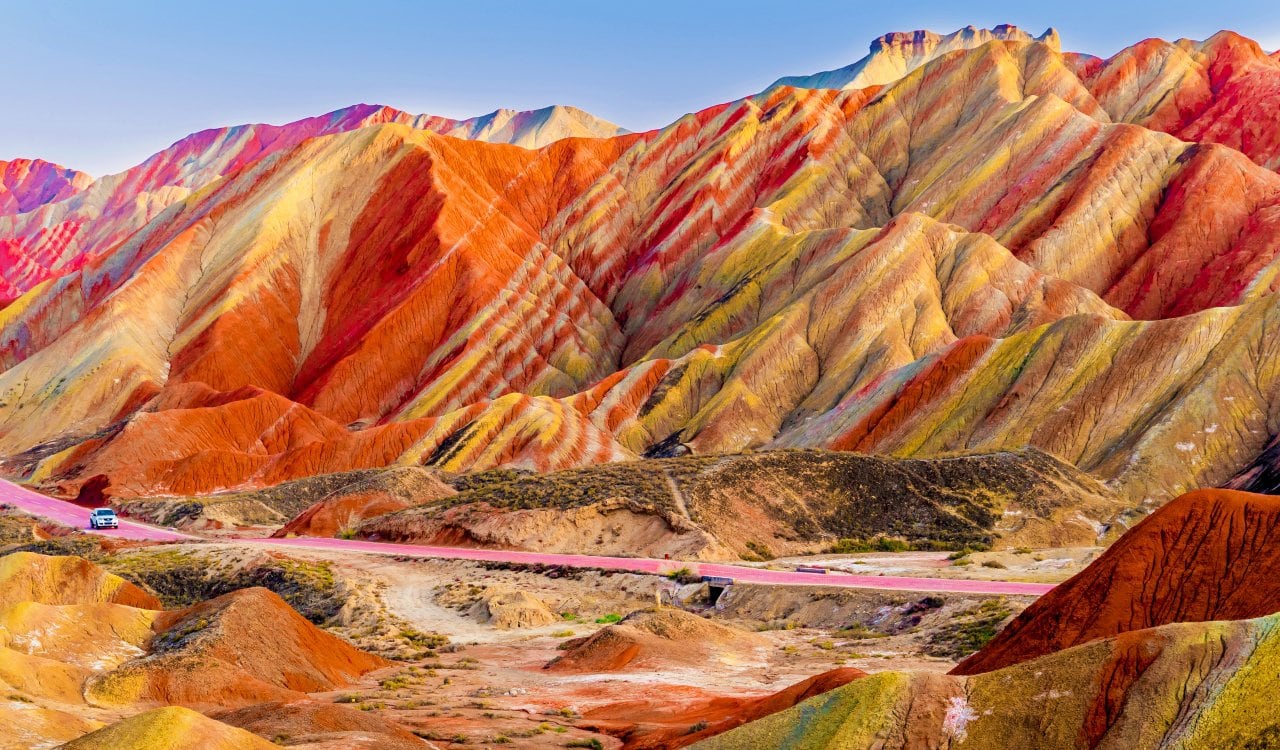
Zhangye National Geopark
- Location: Zhangye(Gansu), China
While China has amazing mountain ranges that the Chinese people have built cities into or lived near for centuries, perhaps the best mountain range to visit in China resides within the Zhangye National Geopark. This is the site of the Rainbow Mountains, which seem too impressive to be natural. Yet they are just that. The rock here is smooth, sharp, and several meters tall. How did they get to the look they present today? Apparently, it is the result of deposits of sandstone and other minerals that together molded the area over 24 million years. This development also came from the same tectonic plates responsible for the Himalayan Mountains. Along with natural sources and time, we now see these amazing towers, ravines, etc. in stunning colors that cannot be seen anywhere else.
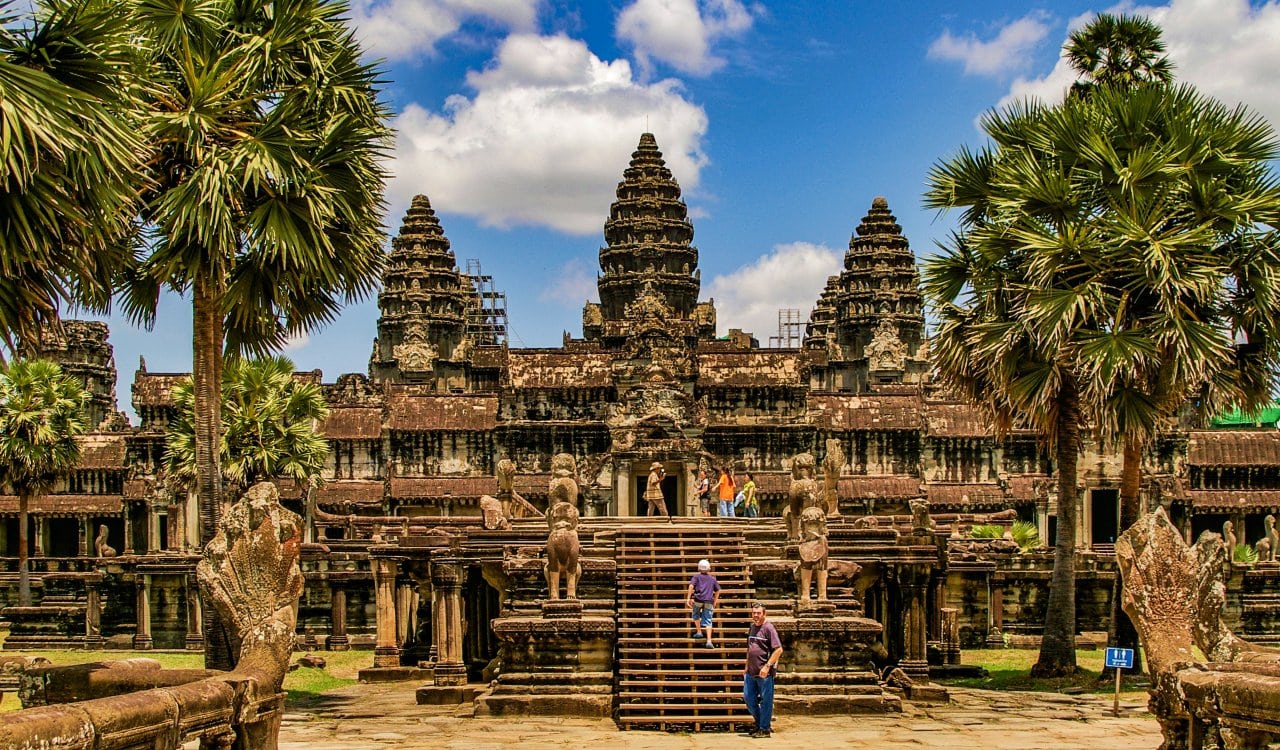
Angkor Wat Temple Complex
- Location: Siem Reap, Cambodia
While we’re not a religious bunch here at Science Sensei, we know amazing architecture when we see it. Places like churches, shrines, or temples were known to be quite impressive or elaborate as people put their all into developing places to worship their God or Gods. The Angkor Wat Temple Complex was formed by the Hindu people and dedicated to the God Vishnu under the order of King Suryavarman II of the Khmer Empire in the early 12th Century. However, times would change and the complex transformed into a Buddhist temple around the late 12th Century. Yet it is now a Hindu-Buddhist Temple. The design was set to represent Mount Meru from Hindu Mythology, which could be why Angkor Wat is the largest religious monument on the planet today. It measures out to 162.6 hectares or 17,502,118 square feet.
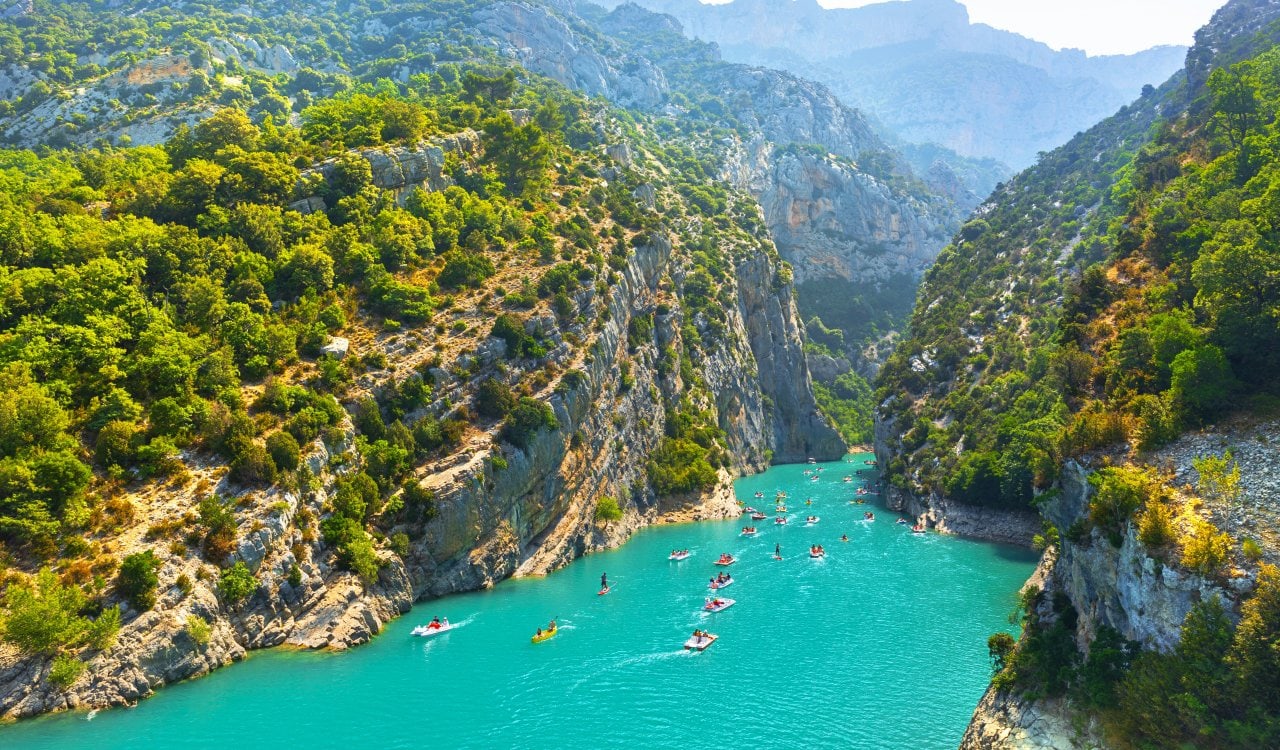
Verdon Gorge
- Location: Provence-Alpes-Côte d’Azur, France
Most would rightly wonder why we feel a random river canyon in France should be among the places to visit before you die. However, if you have ever been there, you’d likely also make sure others went. The Verdon Gorge was formed by the Verdon River, which gets its name from the turquoise-green coloring of the water. The ravine here actually has a depth of 700 meters (2296 ft), which is pretty extreme. It empties out into the artificial Lake of Sainte-Croix. The Gorge is awesome for hiking and rock climbing the limestone walls. However, most love to travel the river here for obvious reasons. This is why boat and kayak rentals are common, often all throughout the year too.

Stonehenge
- Location: Wiltshire, England
Admittedly, Stonehenge is something many of us have seen through images or even television shows/movies. We “think” we know the site through the media we view, but nothing compares to seeing the stones in person and touching them. Stonehenge consists of an outer ring of vertical sarsen standing stones, around 13 feet high each. They weigh around 25 tons and are topped by horizontal lintel stones. Inside are the smaller bluestones, such as the free-standing trilithons, and two bulky vertical sarsens with one lintel. It is widely believed that the stones were formed to fit the sunrise of the Summer Solstice. The structure was said to have been constructed from 3000 to 2000 BCE. The area is an iconic British site, owned by the crown, and has been legally protected since 1882.
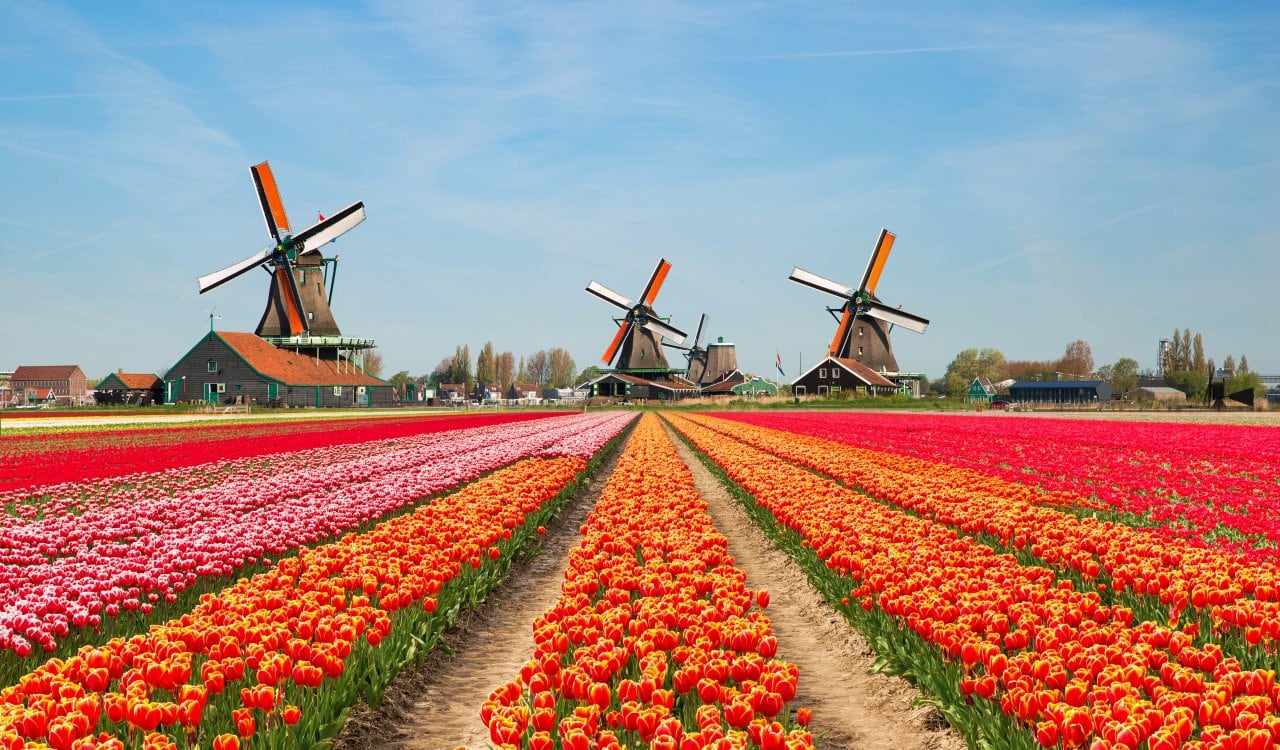
Keukenhof Flower Fields
- Location: Lisse, Netherlands
While this territory is known as “Keukenhof,” many know it as the “Garden of Europe.” Technically, this garden is part of the overall Keukenhof Park which covers an area of 32 hectares or 79 acres. Roughly 7 million flower bulbs are planted in these gardens each year. However, the main thing the park is known for is its iconic tulip fields. Of course, many other flowers grow here too such as daffodils, lilies, carnations, roses, irises, and hyacinths. It should be noted that you cannot just go here any time you want. For 8 weeks from mid-March to mid-May for the Tulip Display, the garden is open to the general public. Yet it is only open for private affairs and festivals the rest of the year. One would assume that would affect tourism in the area, but it has not. In fact, the restrictions make it an even bigger attraction.
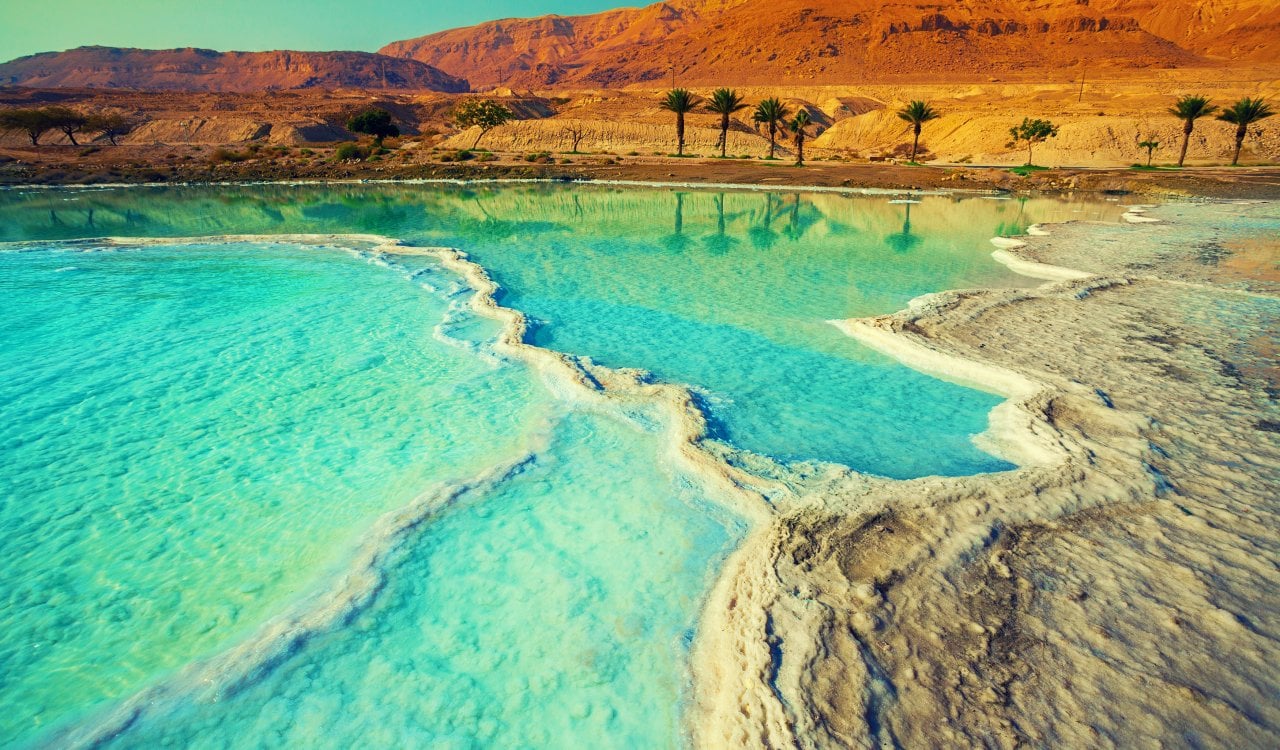
The Dead Sea
- Location: West Bank, Israel/Palestine and Jordan Rift Valley, Jordan
Ironically, we’re suggesting the Dead Sea as one of the places to visit before you die. The Dead Sea is technically part of three nations, those being Israel, Palestine, and Jordan. While it does reside in the Jordan Rift Valley and flows into the Jordan River, the Dead Sea lies within such a spot that it sort of operates as a border between the nations of Israel and Jordan. While referenced as a “Sea,” this is actually a lake with a surface of 1,412 below sea level. The salt level here is at 34.2%, making it the saltiest body of water in the world. The density level is 1.24 kg/liter, which results in swimming being equal to merely floating. The Dead Sea has been a major part of history as products were taken from it to make things like fertilizers, potash, asphalt, and even materials for Egyptian mummification.
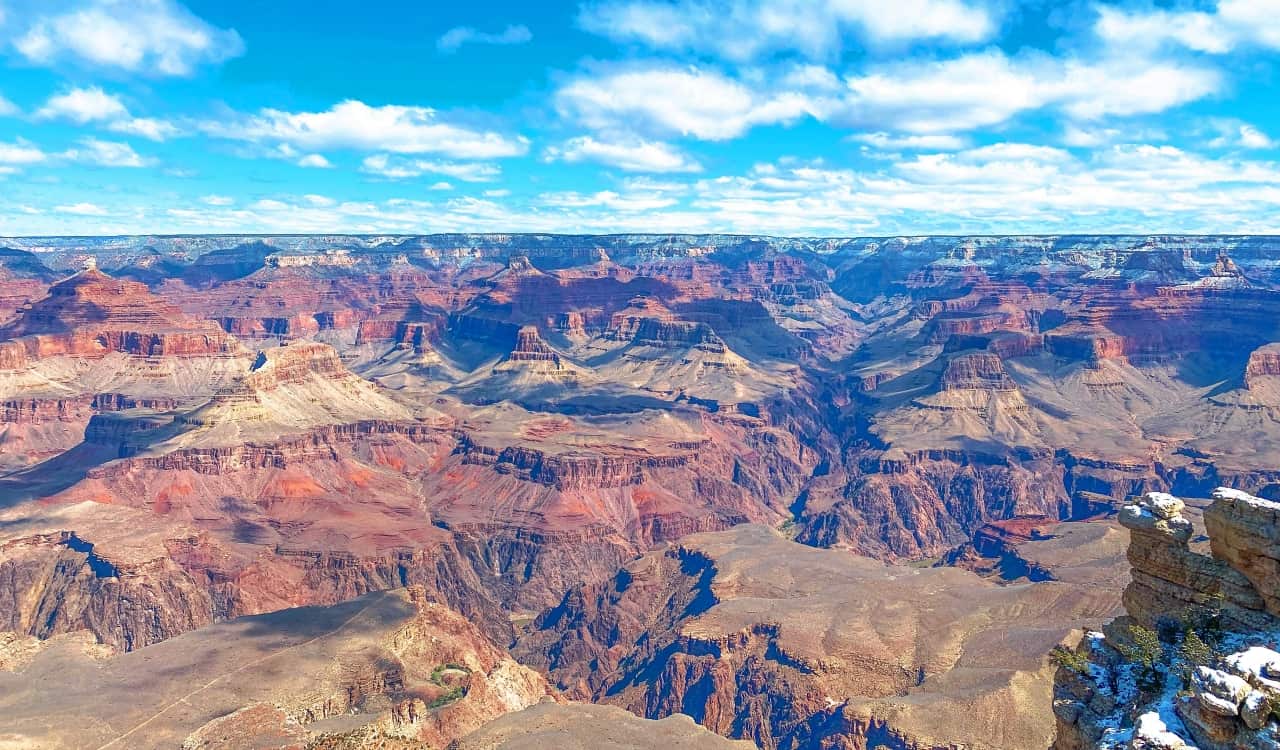
Grand Canyon
- Location: Grand Canyon National Park, Arizona – United States
The Grand Canyon is one of America’s most notable landmarks. It is a steep-sided canyon, roughly 277 miles long and 18 miles wide. The depth of the canyon is over a mile too! While it is an attraction on its own, it is part of the larger Grand Canyon National Park and home to the Hualapai and Havasupai Indian Reservations, along with the Navajo Nation. Native Americans called the place home for thousands of years, and some considered it a holy site such as the Pueblo People. The Canyon formed over two billion years through many rifts and tributaries cutting their own channels through it. Yet it is widely considered that the Colorado River formed the bulk of what we see today roughly 5 to 6 million years ago. Ultimately, this is one of the most notable places to visit before you die.
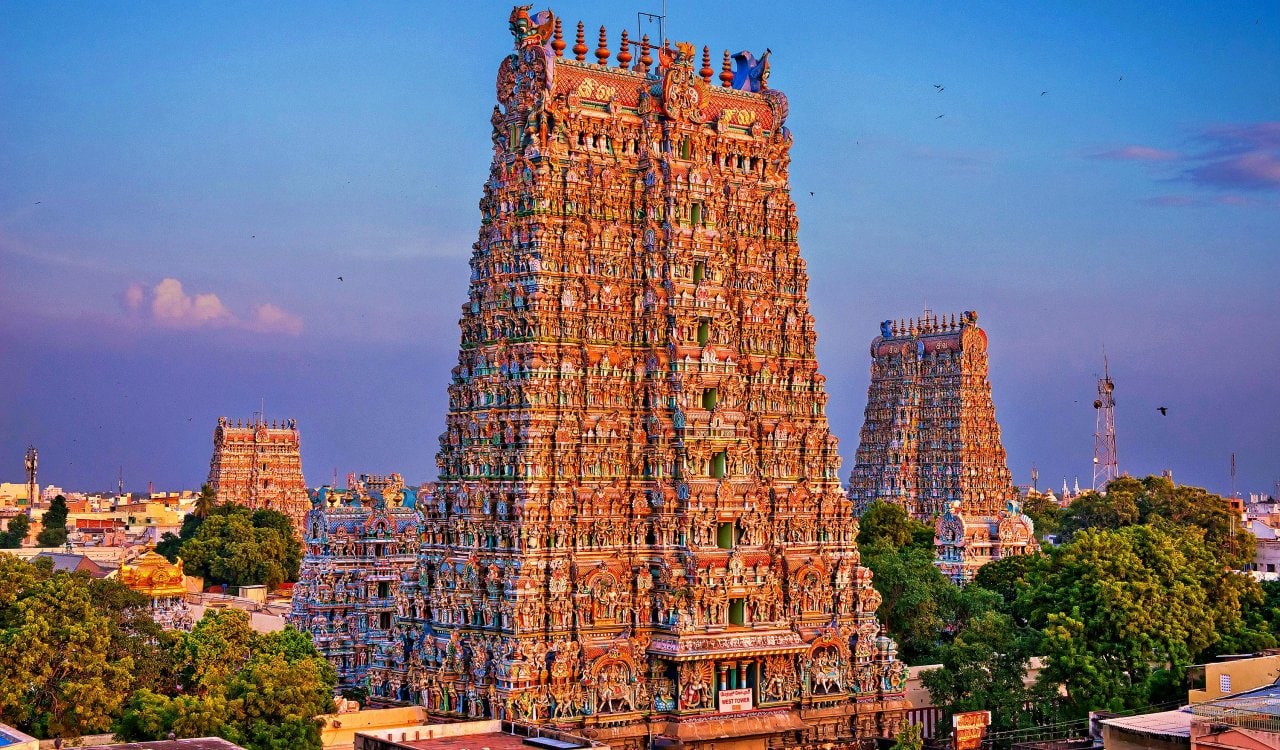
Meenakshi Temple
- Location: Madurai, India
Again, sometimes the beauty of Temples cannot be overlooked. The Meenakshi Temple (aka the Madurai Meenakshi Sundareswarer Temple) is certainly no exception to this rule. To be fair, it already had a leg up by being created in India as there is no shortage of impressive buildings there. This Hindu Temple is dedicated, of course, to the Goddess Meenakshi (a form of Parvati) as well as her consort Sundareshwarar (a form of Shiva). This temple happens to be at the very center of the ancient temple city of Madurai. It was built on the orders of the Pandayan Emperor Sasayavarman Kulasekaran I between 1190 to 1205 CE. The temple takes a lot of design choices from Ancient Hindu text, making what was written into a true reality.

African Savannah
- Location: South Africa, Botswana, Tanzania, Namibia, and Zimbabwe
Most people are not aware that the African Savannah is as large as it is. The reason might likely be due to the fact that most of mankind came out of Africa and Asia, and even tribes still live in these territories. Therefore, assuming it takes up a lot of space seems unlikely as our population is nearing 8 billion. Right now, 46% of the African continent is Savannah. This even includes one-third of the nation of South Africa. Other nations like Botswana, Tanzania, Namibia, and Zimbabwe have some of the most notable nature reserves in Africa. To have a chance to see the amazing wildlife here is a once-in-a-lifetime opportunity that one should never pass up.

Copenhagen
- Location: Kingdom of Denmark
One might wonder why we’d ever recommend a random city in Denmark as one of the places to visit before you die. To some, this seems crazy…but not if you know anything about present-day Copenhagen. This city has been voted one of the most technological and innovative cities in Europe for years now. It has reached the top spot on several occasions too. What’s also interesting is that the nation of Denmark is the happiest on Earth, as the people truly love living here. That could be due to their political policies, such as free healthcare and university. Yet it might also be due to the simplistic nature of everything. The Kingdom also realized it needed to stand out in a crowded European market, which is why it focused heavily on start-ups as well as smart city living. Making them one of the major tech hubs on Earth.
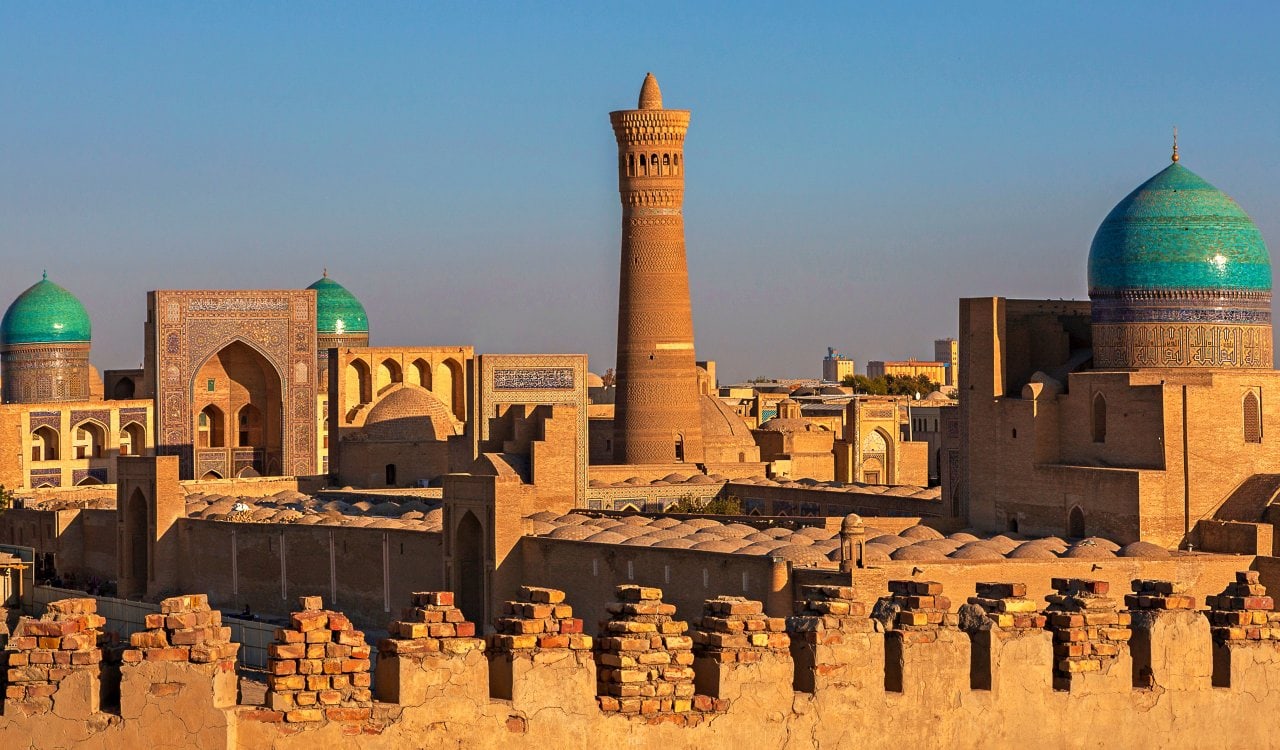
Historic Centre Of Bukhara
- Location: Bukhara, Uzbekistan
People have been living in the Bukhara region for nearly 5,000 years now. The city itself has been there for around 2,000 years and was one of the major stops along the infamous Silk Road. The coolest thing is that Uzbekistan has refused to change much in Bukhara, if anything, in all of that time. Due to that preservation, it remains the best example of a medieval city within the Asian continent. In fact, even some of the famous fabric sold here has remained largely intact. The city was home to major Islamic culture and architecture (proven by the tomb of Ismail Samani). It was also the birthplace of the scholar Imam Bukhari.

Taj Mahal
- Location: Agra-Uttar Pradesh, India
When people think about the nation of India, the first thing they’ll usually think about is the absolutely beautiful Taj Mahal. While it might not seem like it in some images, this is actually an ivory-white marble mausoleum. It sits right on the bank of the Yamuna River in Agra. Mughal Emperor Shah Jahan commissioned the building of the Taj Mahal back in 1631 and they completed it in 1653. At the time, it cost roughly 32 million Rupees, which would today cost 70 billion Rupees or around 1 billion USD. It was initially made to house the tomb of his favorite white Mumtaz Mahal and would eventually house Jahan’s tomb. The Taj Mahal sits on a 42-acre complex and along with the tomb, a mosque and guest house are present along with a formal garden. To us, this amazing building is a must-see in person.
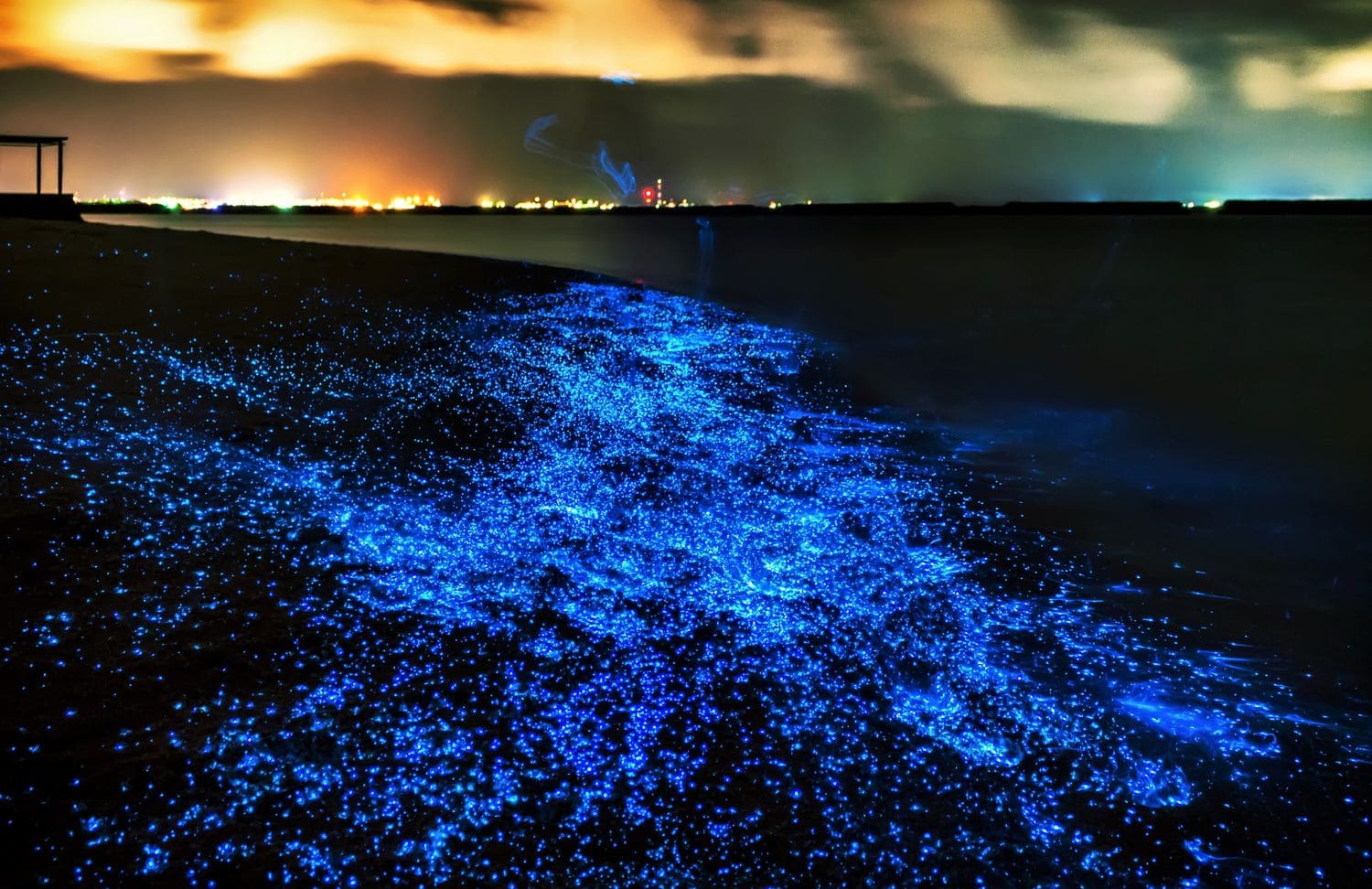 When on Earth.
When on Earth.
Sea Of Stars On Vaadhoo Island
- Location: Vaadhoo Island, Maldives
If there is one place known for its luxury on the planet, it’s certainly the Maldives. Tourism here is massive and one of the top sources of income among the local people. While the white sand beaches and clean roads make the Maldives great, one island stands out big time for something quite special. Vaadhoo Island is known for something called bioluminescence plankton or Redhan. The plankton is quite active in the water at night and results in what seems like stars in the ocean as they light things up. They can be found here throughout the year, which has made the island relatively famous. The “Sea of Stars” must be seen in person, which is why Vaadhoo Island is one of the places to visit before you die, in our book.
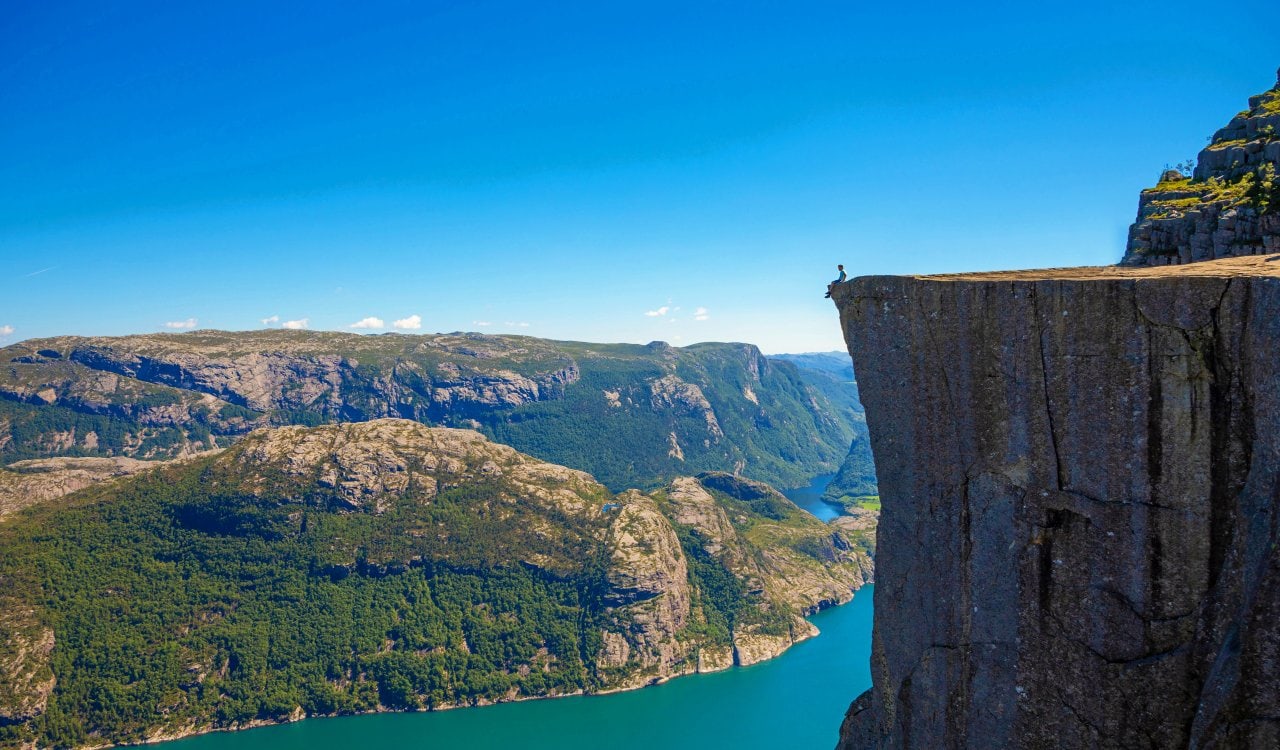
Preacher’s Pulpit
- Location: Rogaland County, Norway
We’re not trying to get religious with you here, but we will tell you that you’ll likely feel pretty amazing if you can ever reach the Preacher’s Pulpit. We do not mean the random pulpit in your local church(es). We’re talking about the amazing rock formation in Norway. It is officially known as “Preikestolen.” This steep cliff is around 1982 feet (602 meters) above Lysefjorden. The flat portion of the cliff is roughly 82 x 82 feet. Scientists were able to figure out that the cliff formed sometime during the last major Ice Age roughly 10,000 years ago. Apparently, the edges of a glacier reached the cliff back then. Water from the glacier froze in the crevices of the mountain and would eventually break off into large angular blocks. Those were carried away by the glacier and now we see the famous formation.
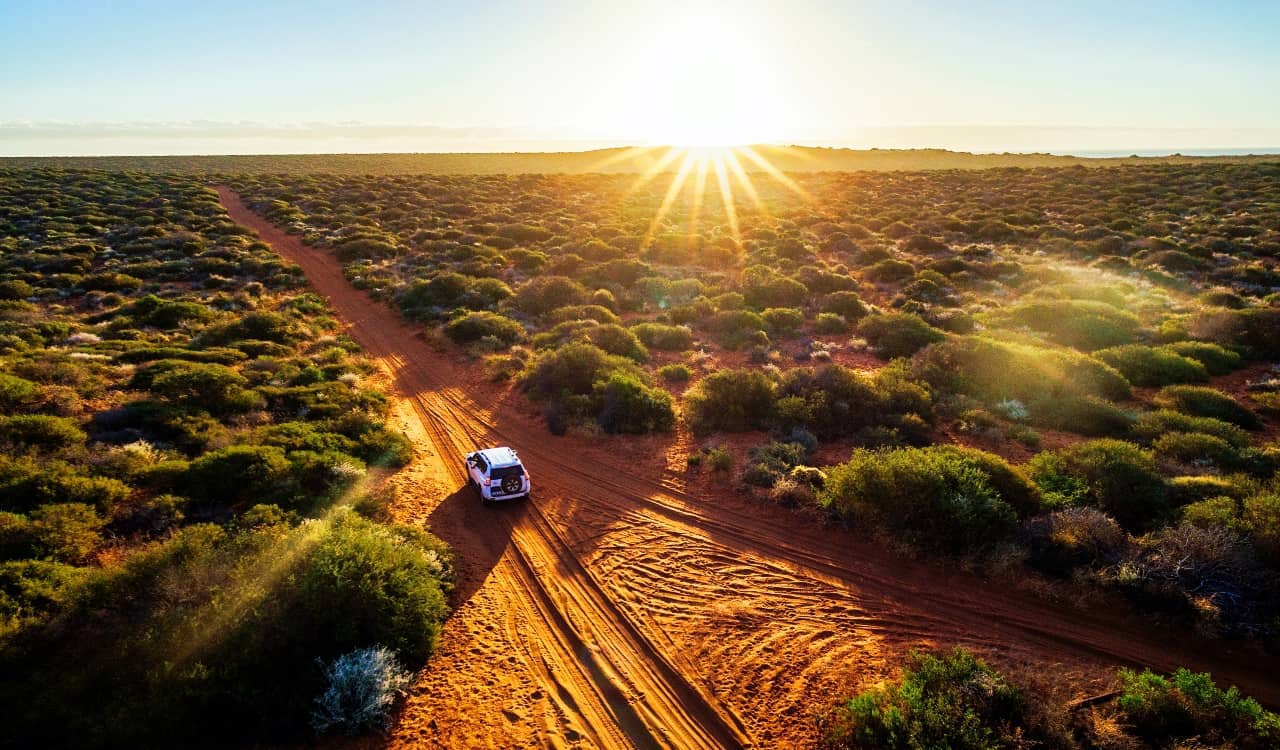
The Outback
- Location: New South Wales, Queensland, and Western, Southern, and Northern Australia
Australia is one of the most unique countries/continents on the planet. Due to splitting off from the rest of the world millions of years ago, the wildlife here is unlike anything you’ll see elsewhere. The landscape here is also amazing, and the entire country is just so incredible. Yet The Outback might be the most infamous part of the country. This is mostly the central section of the country, taking up inland areas of New South Wales, Queensland, Western Australia, South Australia, and sections of Northern Australia. Aborigines lived here for hundreds of years. Eventually, their land was taken from them (a lot like what we saw in the Americas) by colonialists years back. While portions of the Outback were their home (for some it still is), today it’s mostly unoccupied by humans but littered with unique animal species.
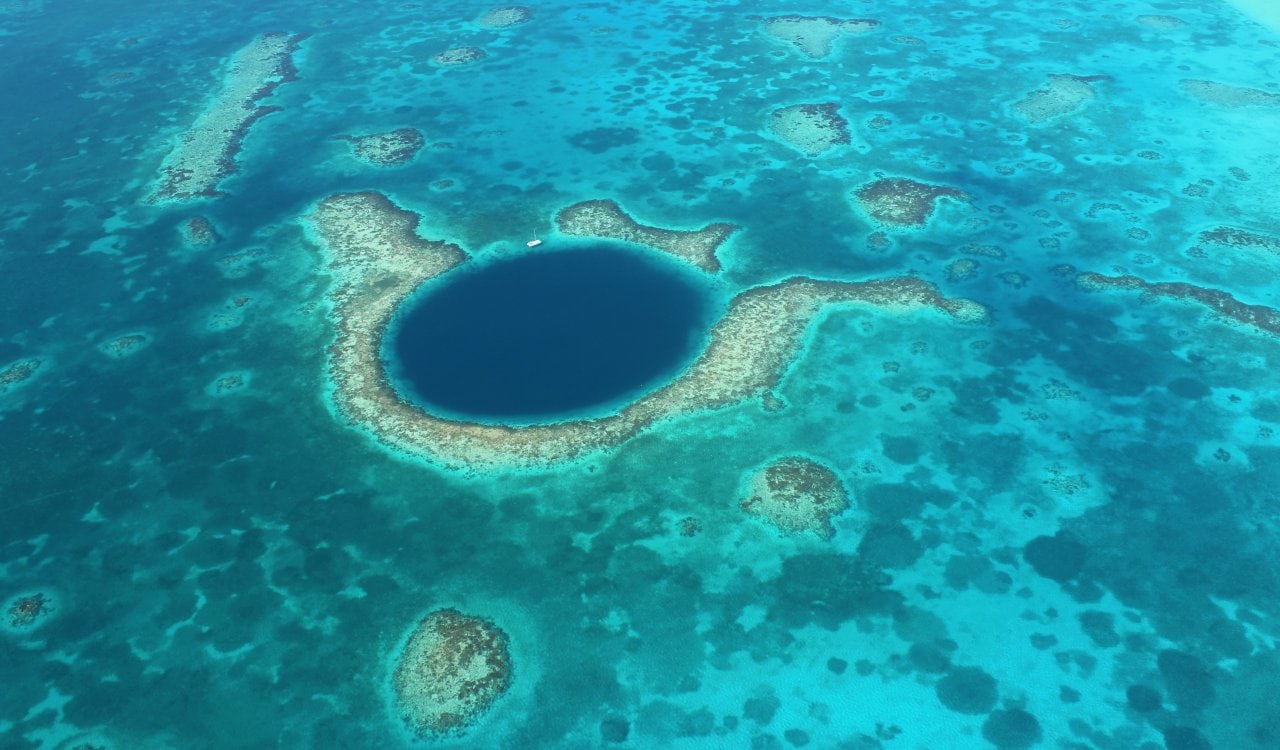
Great Blue Hole
- Location: Off The Coast of Belize City, Belize
Telling someone to go see a giant hole might seem a bit odd. Certainly not worthy of being one of the places you need to visit before you die. Yet we have to make an exception for this area. Lying at the center of the Lighthouse Reef around 43 miles off the coast of Belize City, the “Great Blue Hole” is present. It is so large, in fact, that it can be seen from the International Space Station. The hole is 1,043 feet across and 403 feet deep. In total, it is roughly 760,500 square feet. Apparently, the area was formed after several episodes of quaternary glaciation, back when sea levels were lower. The initial formation began 153,000 years ago but continued to develop. The last time formation occurred was roughly 15,000 years ago. Overall, this entire Barrier Reef is beautiful and well worth exploring.
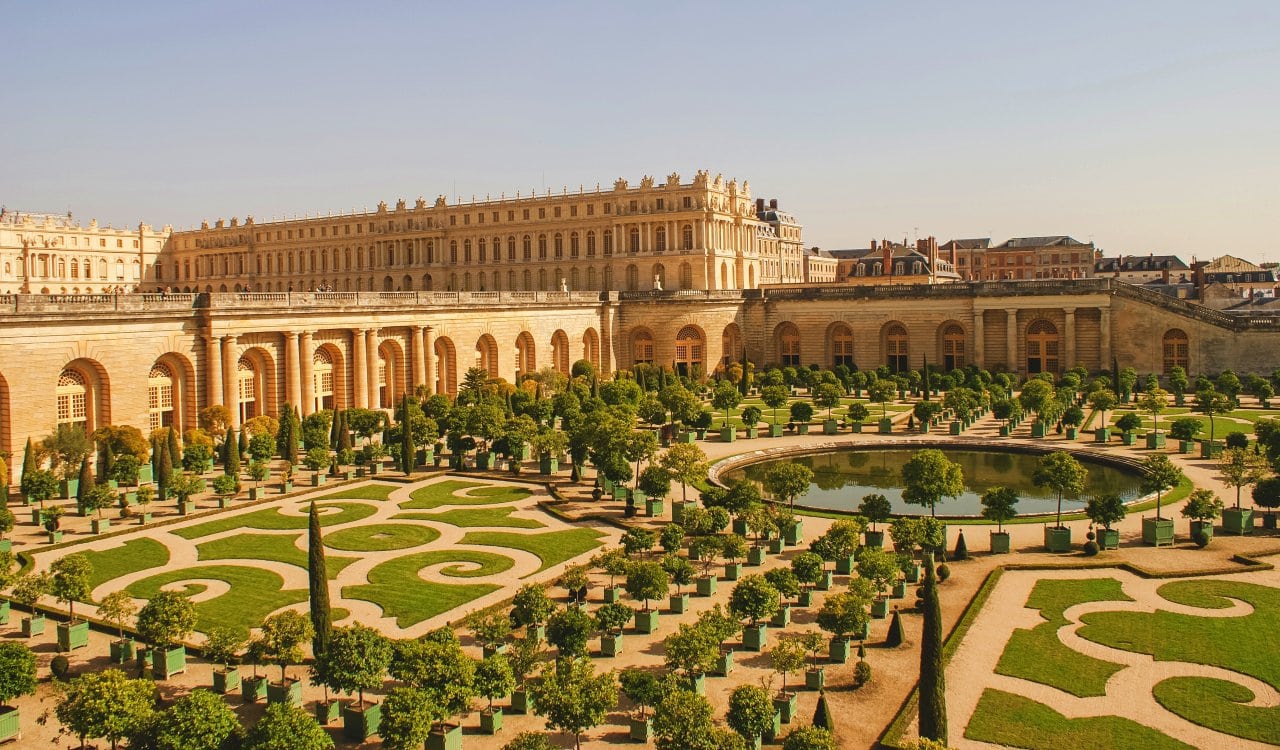
Palace And Park Of Versailles
- Location: Versailles, France
The Palace of Versailles was the former home of the infamous King Louis XIV. Today, it’s owned by the French Republic. The palace was not there at first. In fact, Louis XII only had a small hunting lodge there and replaced it with a small château by 1634. When Louis XIV came in, he transformed the château into a palace. This occurred in several phases from 1661 to 1715. Once it was formed, Louis moved his seat of court and government to the palace, making Versailles the de facto capital of France. Louis XV and Louis XVI made their own alterations, but was largely abandoned by the late 1700s during the French Revolution. In fact, it would not be occupied again until Napolean used it as a summer home from 1810 to 1814. Today the palace and park are a huge part of France, and millions visit them annually.

The Old City
- Location: Jerusalem, Israel
The city of Jerusalem has been around for centuries in some form. Today, “The Old City” is divided into 4 uneven quarters. These are the Muslim Quarter, Christian Quarter, Armenian Quarter, and Jewish Quarter. There is a fifth area, the Temple Mount (home to the Dome of the Rock), which was once the site of two Jewish Temples. Of course, this sector has switched back and forth between the Jews and Muslims for years. The current designations we see here were introduced in the 19th Century. Yet the current walls were actually built by the Ottoman Empire in the mid-1500s. Multiple sites here are historic and critical to all three Abrahamic Religions from the Temple Mount and Western Wall to the Chuch of the Holy Sepulchre and Dome of the Rock. It’s a major place many should visit.
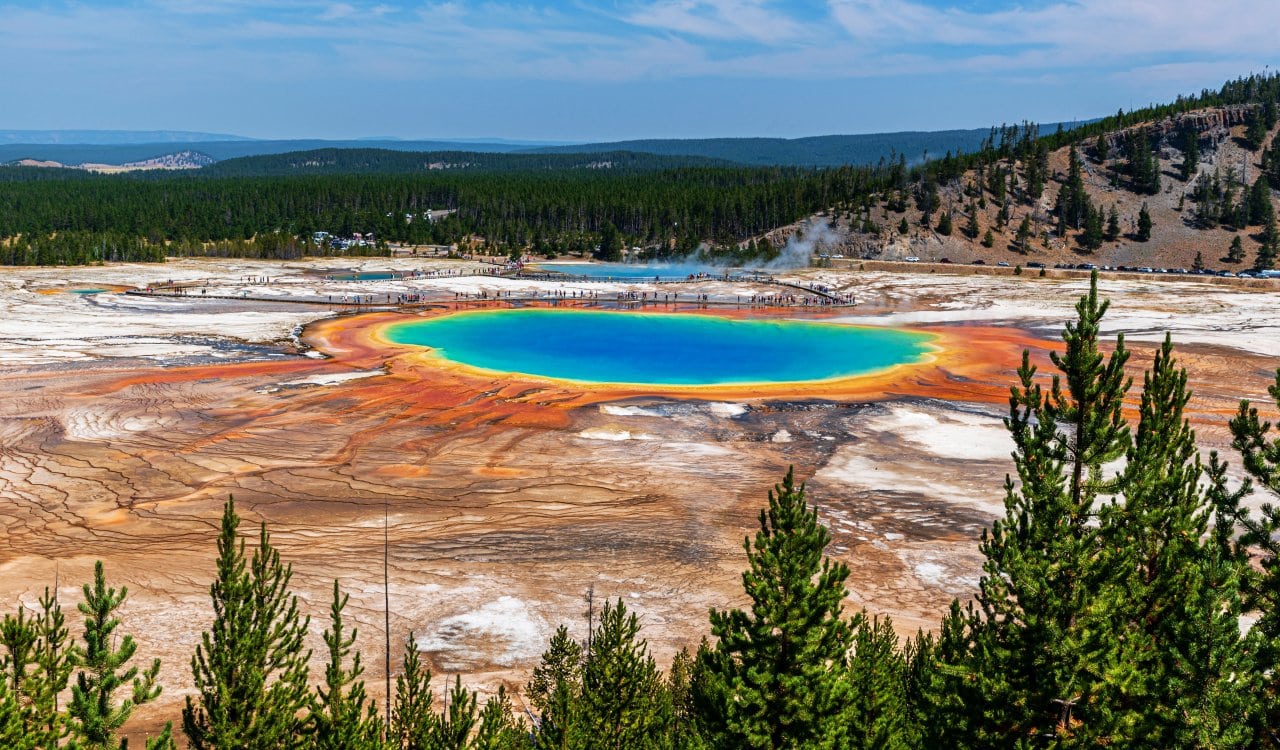
Yellowstone National Park
- Location: Northwest Wyoming, Idaho, and Montana
When we discuss places to visit before you die, Yellowstone is probably the top park you must visit. While the United States has several amazing National Parks, it seems that Yellowstone is perhaps our crowning achievement. The park takes up the Northwest corner of Wyoming, then extends into Montana and Idaho. It was President Ulysses S. Frant that signed the Yellowstone National Park Protection Act in 1872 to keep it preserved. This also made it the very first National Park in the United States. The geothermal features and wildlife, especially the infamous Old Faithful Geyser make the park stand out heavily. Interestingly, outside of Native Americans, organized exploration of Yellowstone did not occur until the late 1860s. The park has still not been completely explored to this day.
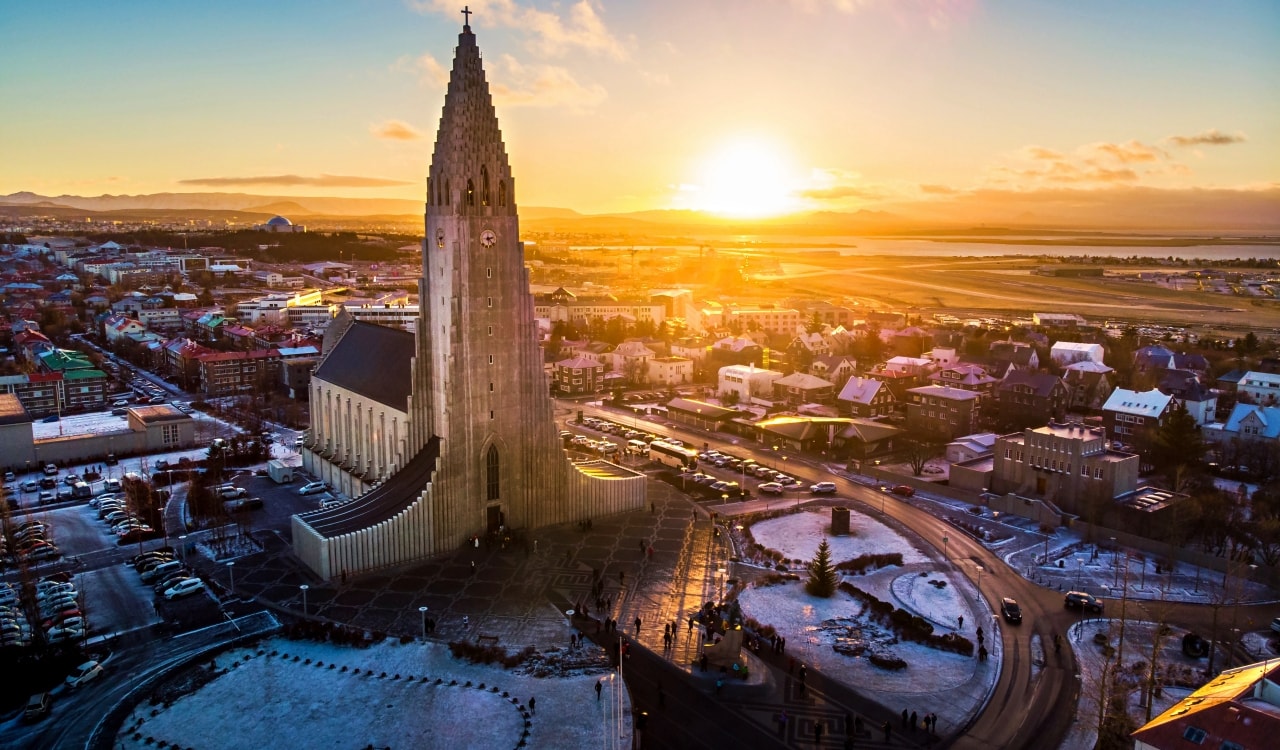
Iceland
- Location: Iceland
It is probably odd to see us say an entire country is one of the places to visit before you die. Yet Iceland sort of fits this concept. It is such a beautiful place with so many amazing things to see. First, you have incredible volcanoes that are well worth checking out at any time. You’re able to see the Northern Lights here too, which is always fun. There are great mountains one can hike as well. If that isn’t enough for you, they have some of the best beaches you’ll ever see. From white and yellow sand to black sand. If all of this isn’t enough for you, most tourists love visiting the shops and conversing with the people. It’s truly a dream place to visit for a reason.
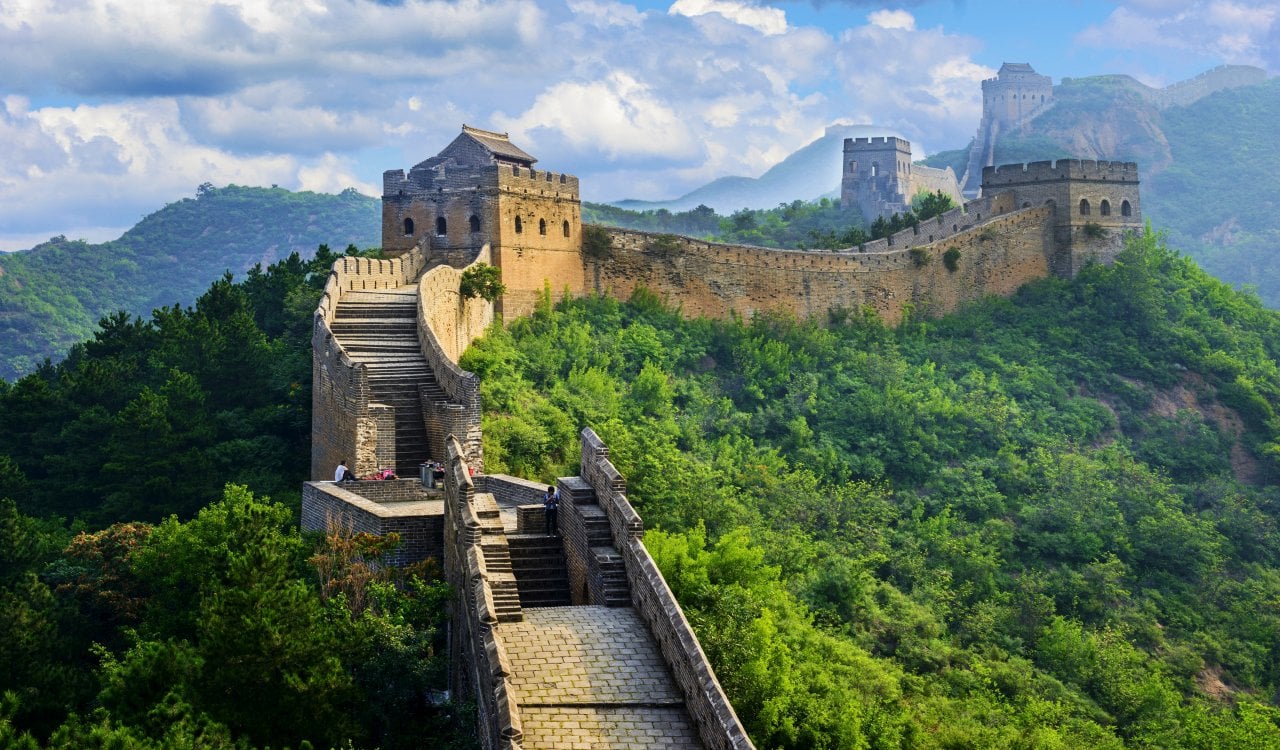
Great Wall Of China
- Location: Border of China
The Great Wall of China is one of the most amazing sites on the planet. While historically there have been many walls in the country, the “Great Wall” was supposed to be made to wrap around all of modern China. The wall was built for border control and defensive purposes and was a huge part of the Silk Road route. As it controlled immigration and trade throughout the region. Throughout many dynasties, it was enhanced to include watchtowers, troop barracks, signaling stations, and garrison stations. The wall collectively stretches from Liaodong in the east to Lop Lake in the west. Along with the present-day Sino-Russian border to the north and the Tao River to the south. This allows it to span a total of 13,170.70 miles. In spite of this, the wall was actually never finished and it is damaged in many areas.

The Great Pyramids
- Location: Cairo, Egypt
Very few will understand how amazing the Egyptian pyramids truly are, at least not unless you see them in person. That makes Egypt one of the places to visit before you die for sure. While there are many great places to visit in Egypt overall, the pyramids usually catch your eye immediately. There are three main pyramids present today but others were built before this that did not hold up. The most critical pyramid is certainly the Pyramid of Giza. The building began to become the tomb of Pharoah Khufu, starting in the 26th Century BCE. It took roughly 27 years to complete. It is the only remaining Ancient World Wonder and has stood for 4500 years as of this writing. In spite of its coloring today, the pyramid used to be white with a gold top, but centuries of theft changed its appearance.
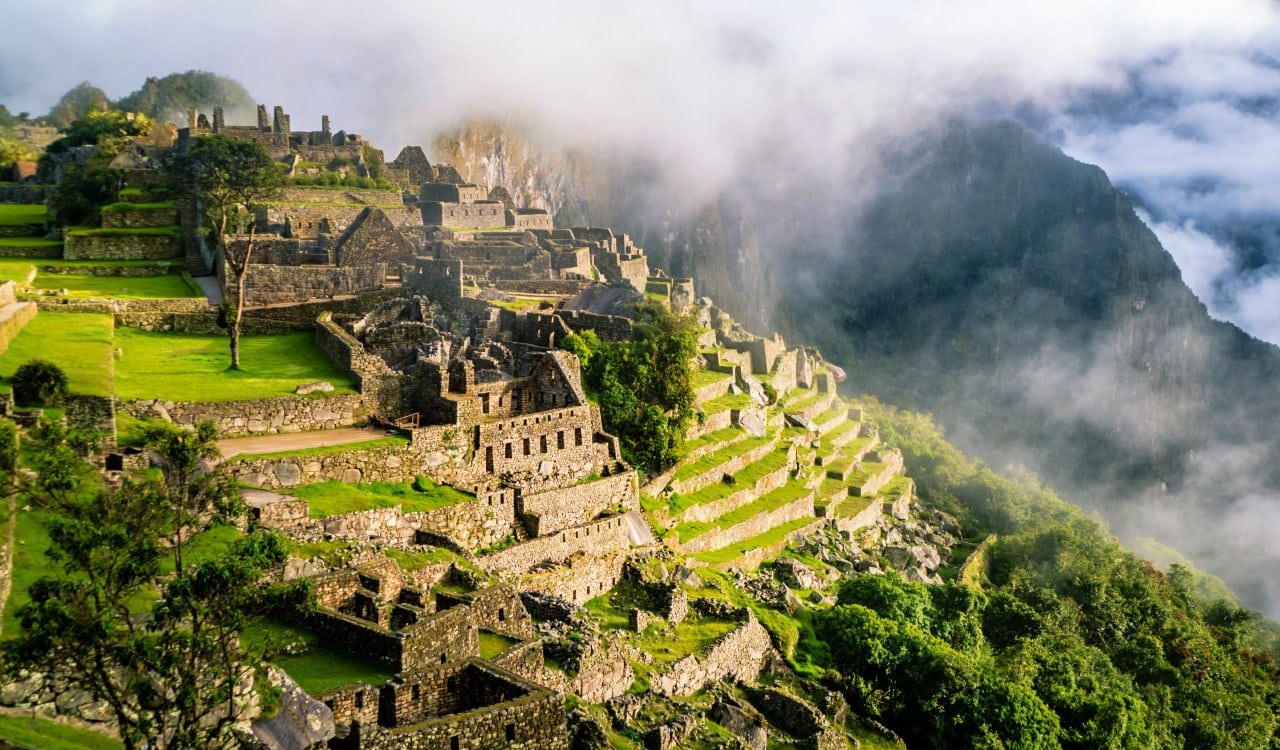
Inca Trail To Machu Picchu
- Location: Piscaucucho Village to Machu Piccu, Peru
Going to the infamous Machu Picchu site is terrific. Many people have enjoyed seeing what Peru has to offer along the most popular route to getting there, known as the Inca Trail. This is a 3 to 5-day hike depending on your preference and how you choose to trek the area. The Inca Trail covers around 26 miles of land, beginning out of the Piscaucucho Village. Most hikers rate it as a “moderately difficult hike,” mostly due to how long it can be and the fact that you’re part of a tour rather than doing it alone. The trek is quite long too, and you reach an elevation just shy of 14,000 feet. Yet this is all worth it to see the amazing landscape. You’re then rewarded at the end by seeing the amazing Machu Picchu site too.
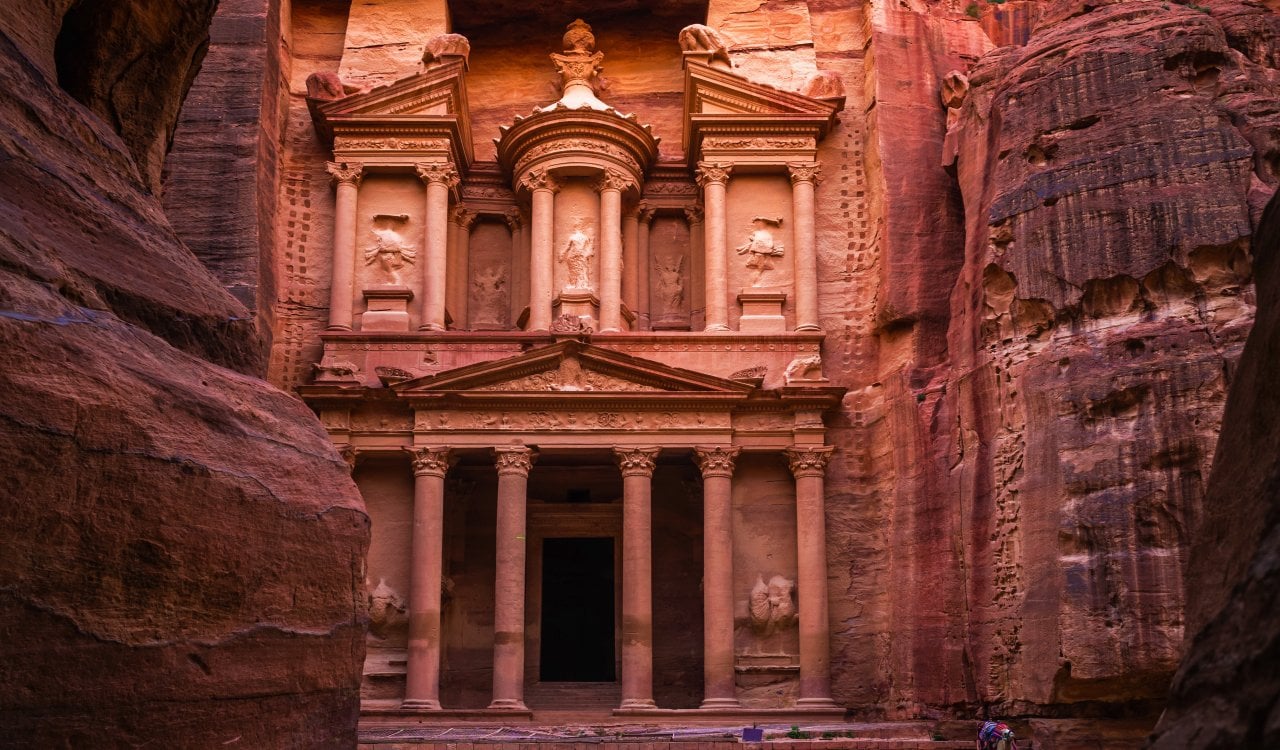
Temples Of Petra
- Location: Petra, Jordan
If you’ve never seen Petra (The Lost City), we feel you need to get there. It is most certainly one of the places to visit before you die and is highly underrated. The Temples here are part of a grand monumental complex within Petra. It is said that the complex was likely finished sometime in the early century CE. The construction was ordered under the rule of Nabataean King Aretas IV. The Grand Temple, which everyone usually notices first, was critical to Ancient Petra. It is not clear whether or not the complex was built for a religious or political purpose, funny enough. In fact, many are not sure it is religious at all but it gets the Temple name due to how it appears. Everything is built into the rocky mountain and has to be restored off and on as a result.
Where do We Find this Stuff? Here Are Our Sources:
UNESCO World Heritage Convention
United States National Park Service (NPS)
National Geographic
Smithsonian Institution
American Museum of Natural History
